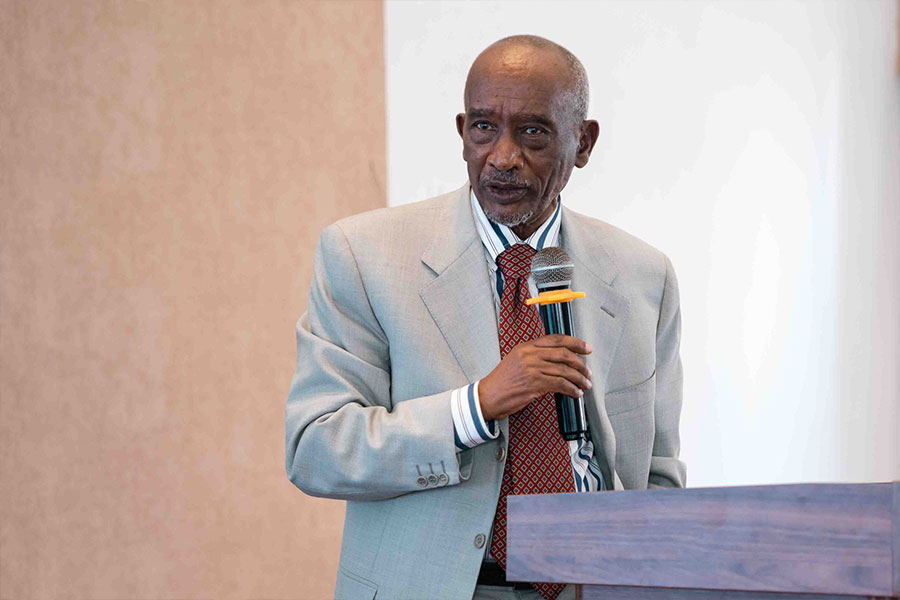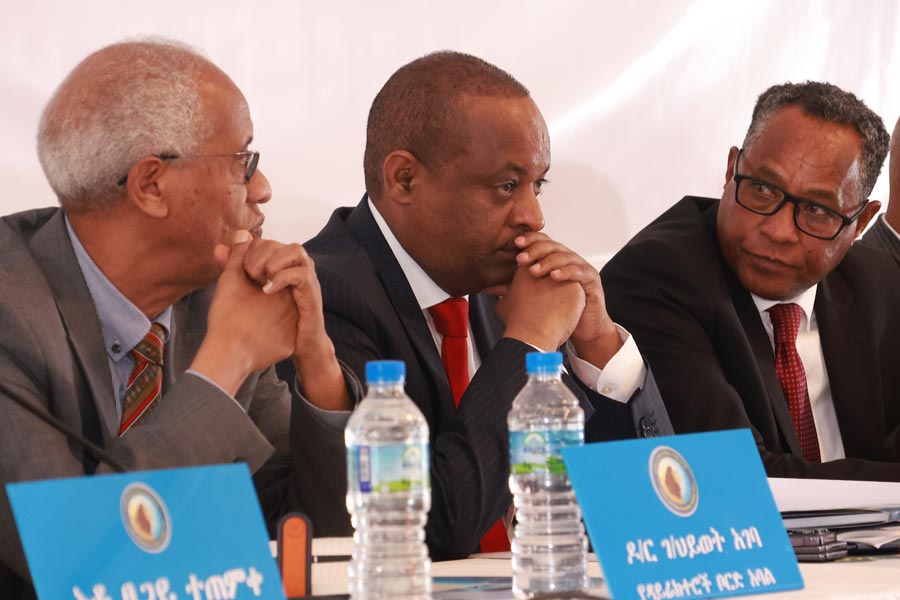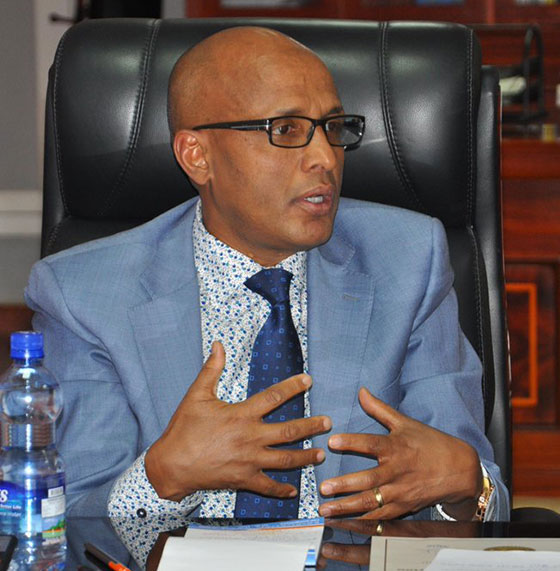
Films Review | Jun 20,2020
Oct 11 , 2020
By FASIKA TADESSE ( FORTUNE STAFF WRITER )
Justices at the Federal Supreme Court have remanded the six-year-old court wrangling between Prosper International and Tekleberhan Ambaye Construction Plc (TACON), reversing the lower court's ruling that favoured the latter. The two have been in a legal ordeal over a construction equipment rental agreement.
The five justices, including Solomon Areda, vice president of the Supreme Court, have returned the case to the Federal High Court where the case began. In the ruling, the justices stated that the lower courts did not properly examine evidence and witnesses' testimony in passing the rulings.
The case was instigated following a dispute that arose after TACON rented two wheel loaders and a bulldozer from Prosper for the civil work it was subcontracted for at Yayu Fertilizer Factory in Yayu Wereda, Oromia Regional State. The then Metals & Engineering Corporation (MetEC) subcontracted the civil work to TACON at a cost of two billion Birr.
For the two wheel loaders, the disputing parties contracted for 400 hours each and 500 hours for the bulldozer. TACON paid 460,000 Br for each loader and just under 1.1 million Br upfront for the bulldozer. After the machines had served for 445 hours, TACON let them idle with no orders to accomplish, according to Prosper’s appellate.
"Even though the machines were idle, we request a payment for a minimum of eight hours a day since the contract was not terminated,” reads the appeal. "As an amicable resolution for the payment Prosper was owed, a loader and a bulldozer were rented to Felema Construction after getting a green light from TACON."
After the contract with Felema ended, Prosper received the bulldozer. At the same time, the loaders remained on site because of TACON's claim on the loaders for the remaining hours for which partial payments were made, according to the appeal.
Prosper then gave a legal notice to TACON requesting payment and the release of the machines. TACON also gave a counter legal notice asking for the return of its advance payment for the wheel loaders. TACON then sued Prosper for money owed amounting to 204,460 Br, claiming the machines did not serve for the period due to technical problems. Proposer countersued TACON for the accrued rental payment amounting to 6.1 million Br.
TACON also argued that the contract was for only 500 hours for the bulldozer and 400 hours each for the wheel loaders, which was disputed by Prosper, arguing that the contract stipulated an indefinite period of use of the machines for the project duration.
The High Court rejected the claims from both parties. The judge stated that TACON did not present evidence to prove its claim in notifying Prosper about the malfunctioning of the machinery. The Court also asserted that Prosper had already taken the full payment for the equipment, and there is no need for TACON make further payment to Prosper.
Prosper appealed to the appellate court at the Federal Supreme Court, which sustained the lower Court's ruling without even summoning TACON. This triggered Prosper to take the case to the Cassation Bench. In its appeal, Prosper claimed that the lower courts made fundamental errors of law in the rulings. It also claimed that the High Court did not properly interpret the contract between the two parties.
Prosper appealed to the Bench requesting a reversal of the Supreme Court's ruling. TACON filed a counter appeal, asserting that Prosper opened the file after a year and five months of the Supreme Court's ruling, past the period when limitations had expired. Then the justices rejected Prosper's appeal by stating that it was filed without following correct legal procedure.
Prosper then petitioned for judicial review and a right to appeal, which got acceptance. The Cassation Bench has started reviewing the case afresh.
TACON has filed two counter appeals opposing the ruling to reinstate the appeal and calling for the case to be closed since it was opened without proper legal procedure.
However, the five justices have rejected TACON's appeal over the decision of judicial review, stating that the case has to be reviewed with a separate file, which permitted the appeal.
Mulugeta Belay, an attorney and consultant at law, does not agree with the ruling that dropped TACON's appeal, saying the same issues should not be entertained under separate files. TACON has also lost room to appeal since the dropped appeals are not registered and are not recorded at the Supreme Court, he said.
"The appeal process has so many procedural irregularities," Mulugeta commented.
"The appeal got filed in a timely manner," said Tsegaye Mekonnen, the deputy general manager of Prosper. "We proceeded with the case after making sure that all the documents we need were ready."
"With our review, we noticed that there are basic issues that weren't properly addressed," reads the ruling. "[We found] evidence and witness examinations and the ruling not to be appropriate."
The Bench has also remanded the case to the lower court upon framing four issues: namely, why the loaders and bulldozer were idle and whether TACON has to pay the rental fee for this period, why Prosper did not take the machines, who was responsible for what happened to them during this period, and whether TACON has to pay rents for the period under review.
TACON's in-house councillor, Nega Getaneh, says that they are planning to take the case to the Council of Constitutional Inquiry for constitutional interpretation.
"Our constitutional right was violated while the judicial review decided to allow them to open the case," he said. "We were not even summoned when the decision was made, while the law stipulated our presence should be allowed before a decision is made."
Nega also argues that justices at the Cassation Bench assessed the evidence, though they were supposed to review if the lower courts made a fundamental error of law.
"They literally took the role of the lawmakers' power," he said. "Separation of power was violated."
Mulugeta does not agree with Nega, saying that appellate benches can review evidence when evidence assessment is the core of the court hearing process and when the lower court's ruling violates the law of evidence.
Prosper is getting ready to reinitiate the case at the Federal High Court with the framed issues, according to Tsegaye, who adds that the case can be settled without even hearing witnesses.
"The court can resolve the issue by just reviewing the contract between us," he said.
Mulugeta also says that the lower court was not right in hearing testimonials of witnesses, while it should have closed the case after only reviewing the contractual agreement between the two.
"The contract is clear and shows that the agreement is for an indefinite period," he said. "And yet TACON did not notify the company that the contract was terminated with a written notice as stipulated in their agreement."
PUBLISHED ON
Oct 11,2020 [ VOL
21 , NO
1067]

Films Review | Jun 20,2020

Fortune News | Sep 28,2025

News Analysis | Feb 17,2024

View From Arada | Jul 17,2022


Commentaries | Dec 19,2018

Fortune News | Aug 28,2021

Agenda | Sep 30,2023

My Opinion | Aug 24,2019

Fortune News | May 16,2020

Dec 22 , 2024 . By TIZITA SHEWAFERAW
Charged with transforming colossal state-owned enterprises into modern and competitiv...

Aug 18 , 2024 . By AKSAH ITALO
Although predictable Yonas Zerihun's job in the ride-hailing service is not immune to...

Jul 28 , 2024 . By TIZITA SHEWAFERAW
Unhabitual, perhaps too many, Samuel Gebreyohannes, 38, used to occasionally enjoy a couple of beers at breakfast. However, he recently swit...

Jul 13 , 2024 . By AKSAH ITALO
Investors who rely on tractors, trucks, and field vehicles for commuting, transporting commodities, and f...

Oct 25 , 2025
The regulatory machinery is on overdrive. In only two years, no fewer than 35 new pro...

Oct 18 , 2025
The political establishment, notably the ruling party and its top brass, has become p...

Oct 11 , 2025
Ladislas Farago, a roving Associated Press (AP) correspondent, arrived in Ethiopia in...

Oct 4 , 2025
Eyob Tekalegn (PhD) had been in the Governor's chair for only weeks when, on Septembe...